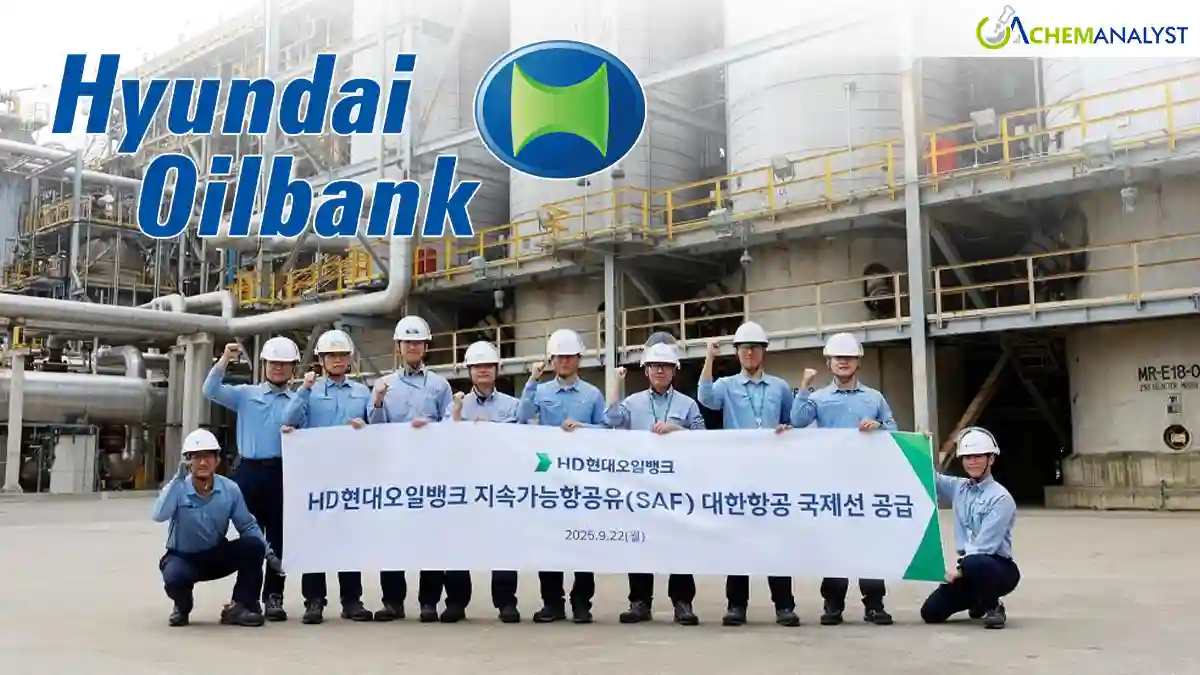Welcome To ChemAnalyst

HD Hyundai Oilbank is set to supply sustainable aviation fuel (SAF) to Korean Air's international flights to Japan, marking its entry into the domestic market ahead of South Korea's 2027 blending mandate.
In a significant move to solidify its presence in the burgeoning sustainable aviation fuel (SAF) market, HD Hyundai Oilbank announced a contract to supply SAF to Korean Air's international flights on the Incheon-Kobe route. The agreement, which runs from September of this year through the end of 2026, makes HD Hyundai Oilbank the exclusive supplier for approximately 90 flights. This marks the company's first foray into the domestic market, building on its prior success of exporting SAF to All Nippon Airways in Japan last year. The deal comes at a pivotal moment, as it precedes the South Korean government's planned enforcement of a mandatory SAF blending regulation starting in 2027.
The partnership between the oil refiner and the national carrier is more than a simple supply agreement; it's a strategic effort to establish a commercial supply system well in advance of the government mandate. The Ministry of Trade, Industry and Energy recently confirmed that South Korea will require a 1% SAF blend for all international flights starting in 2027, with discussions to increase this to 3-5% by 2030 and 7-10% by 2035. This policy aligns with global trends, as countries like the European Union and Japan have already introduced or announced similar regulations. The EU, for example, has a 2% blending mandate this year, which is set to rise to a substantial 70% by 2050.
The race for market dominance is fueling competition among South Korean refiners and chemical companies, who are exploring different production methods to meet the growing demand for SAF. HD Hyundai Oilbank is utilizing a process known as "refinery co-processing," which involves processing bio-based feedstocks like waste cooking oil and animal fats alongside crude oil in existing facilities. This method offers the advantage of low initial investment and rapid market entry, as it doesn't require the construction of new plants. However, a key limitation is the restricted proportion of bio-based feedstocks that can be used, which curtails large-scale production capabilities. This is the method currently employed by most domestic refiners for their commercially supplied SAF.
In contrast, major global players are focusing on a more capital-intensive approach: the "dedicated plant hydrogenation production method." This process involves constructing a new, specialized facility to process waste cooking oil and vegetable oils with hydrogen, producing only SAF. While it requires a significant investment of hundreds of billions of won, it enables a stable, large-scale production system capable of fulfilling major international contracts.
We use cookies to deliver the best possible experience on our website. To learn more, visit our Privacy Policy. By continuing to use this site or by closing this box, you consent to our use of cookies. More info.
